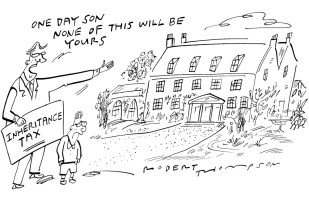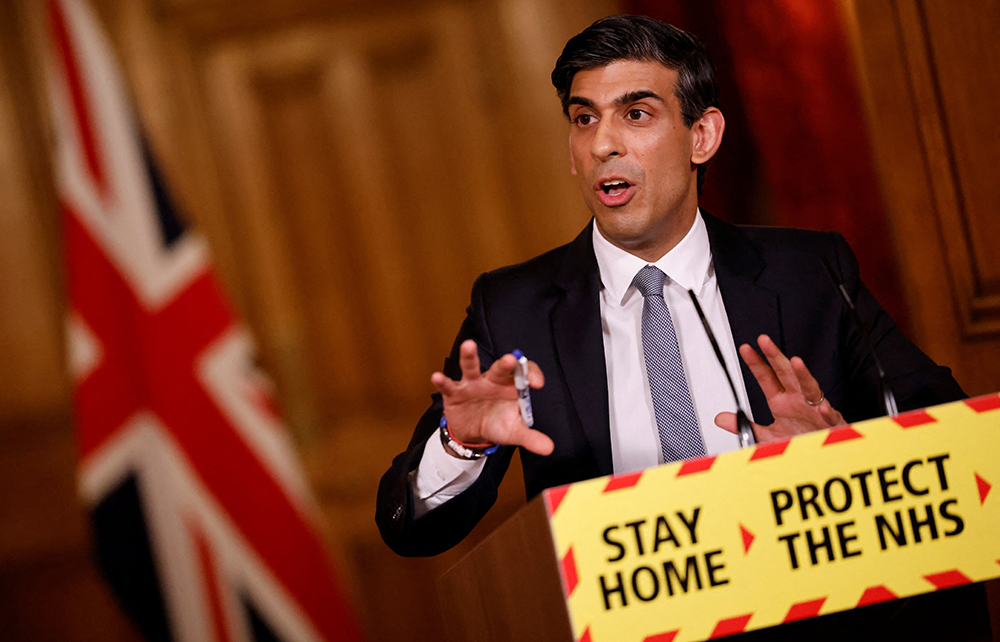A former Labour spin doctor recently offered some advice for governments considering a public inquiry. Rule No. 1: Don’t. But if ‘you’re stupid enough’ to do so: don’t make the inquiry independent, don’t give it powers, know the conclusion you want, set the remit accordingly and appoint a chair who knows the brief. Unfortunately for Rishi Sunak, the inquiry he has inherited from Boris Johnson’s time in Downing Street ticks none of these boxes.
‘It’s basically going to show that everyone hated each other. The pettiness will be embarrassing’
Even before its official launch this week, there were signs of trouble. The brief is to provide a factual account of the Covid-19 response across the UK and to identify lessons about preparing for future pandemics. Yet last month the government made the un-usual move of taking its own inquiry to court to try to avoid having to hand over all unredacted messages. The inquiry’s lead lawyer, Hugo Keith KC, used his opening remarks to criticise the Cabinet Office and admonished those witnesses who have so far provided ‘insufficient detail’.
Why is Sunak so reticent? Because Downing Street fears the Covid inquiry is starting to look like a political colander, leaking every-where. It was supposed to keep things quiet for a year or two, to let ministers say: ‘I’ll save my comments for the inquiry.’ Instead, it is becoming a source of news. Allies of the Prime Minister warn of the likely consequences if all messages – including those not directly related to Covid – are given to an army of lawyers. ‘It will be leak central,’ predicts one aide.
So Sunak is fighting a lonely and unpopular battle. Matt Hancock has submitted his messages unredacted – although given that he also submitted them to the journalist Isabel Oakeshott, it’s unlikely there are any disclosures that she has not already revealed. Johnson has enjoyed making it clear he is happy to do the same. Meanwhile, even ministers suspect the Cabinet Office’s judicial review will fail. ‘The government looks overly secretive,’ complains one senior Tory. ‘It’s allowed Boris to outflank Rishi.’
Inside government, the frustration at Johnson goes beyond his messages – to his decision to call an inquiry in the first place. One insider says the terms are ‘too relaxed’, meaning a long and costly process. (‘It could be done in six weeks,’ says an aide.) The wisdom of appointing Lady Hallett – who dismissed arguments by lawyers for MI5 over highly sensitive documents during the 7/7 inquest – has also been questioned privately. ‘It’s almost as though there was a leader who wasn’t across the detail,’ says a former cabinet member.
Among the ministers and former ministers called on to provide written statements are Michael Gove, Dominic Raab, Penny Mordaunt, Kemi Badenoch and Liz Truss. Aides on the witness list have been asked to hand over their phones so that data can be transferred – although several have declined, concerned at how the data could be used. (‘Never trust the Cabinet Office,’ says one former aide.) Strategies are being compiled that range from ‘boring them to tears’ to ‘hoping they go away’.
People on all sides take the view that the story’s main elements are already out there: mistakes on care homes, indecision at the core of government, the failure to conduct a cost-benefit analysis of lockdown. The first batch of questions from Hallett to Johnson include, ‘Please confirm whether you suggested to senior civil servants and advisers that you be injected with Covid-19 on television’ and ‘Did you state that you would rather “let the bodies pile high” than order another lockdown?’ Other witnesses have been asked whether the former prime minister used the phrase.
If the inquiry is focusing on Whitehall gossip about what Johnson said in moments of frustration rather than whether lockdown policies actually worked, it could take a very different tone. ‘I’m dreading it,’ says an ex-official. ‘It’s basically going to show that everyone hated each other. The pettiness will be embarrassing.’ ‘It was just like any office,’ says a former No. 10 aide of the bitching that will be laid bare. ‘But everyone needs to let off steam and complain about colleagues – that’s normal.’
The focus on ‘government by WhatsApp’is alarming many involved. At the time, some used the platform for off-grid communication, which led (as we have seen with Hancock) to all sorts of wild and unguarded comments. While the inquiry is asking for all forms of communication, one official says that Lady Hallett has suggested she is not interested in work emails. ‘She’s behaving like a tabloid journalist,’ claims another.
Of the WhatsApp groups identified as key, ‘No. 10/DHSC/Covid-19’ is described as the most chaotic. ‘People would keep getting added every day,’ says a source. ‘It got out of control after starting off with five.’ Most of the participants have now left: one of the last messages was sent in April 2021 by Martin Reynolds (Johnson’s former principal private secretary, responsible for the BYOB email about the No. 10 garden party), in which he wrote ‘ventilators’. No one replied. But there are hundreds of government Covid groups: ‘Any decision or minor event could spark a WhatsApp group. I think there was even one just about cruise ships,’ recalls an aide.

The people concerned suggest that Hancock’s leaked WhatsApps are simply an amuse-bouche. ‘The lack of respect people had for Boris will come through,’ predicts a participant in several of the groups. ‘It’s Dom calling for tighter messages and Patrick [Vallance] and Chris [Whitty] having to explain the science repeatedly.’ Luckily perhaps for the new PM, he is regarded as being not much of ‘a WhatsApp man’. ‘It wouldn’t shock me if the reason the Cabinet Office is so obstructive is Simon [Case],’ says a former colleague of the scandal-prone cabinet secretary. ‘He was so indiscreet and has the most to lose. He was very critical of Matt and Boris.’
The inquiry won’t conclude until 2026, but already many in Westminster are sceptical about its focus. ‘It seems to be all about catching out ministers and not looking at the processes and biases that led to poor decision-making,’ says one Tory MP. If that turns out to be the case, an opportunity will have been missed to use the inquiry to shed light on government decision-making, instead of for another round of political point-scoring.







Comments